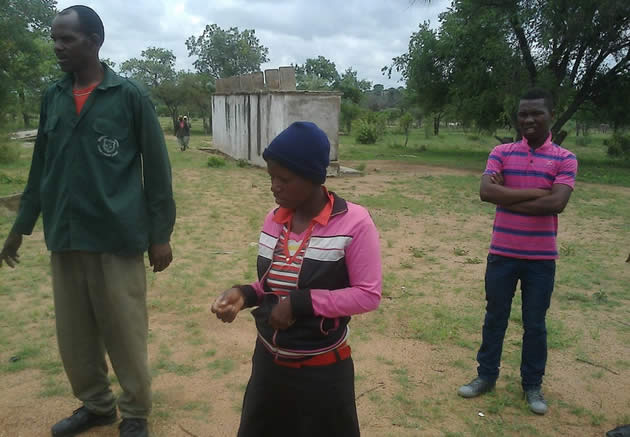Editorial Comment: Herbal drug to help boost immunity, not cure

![]() Humanity has used herbal medicines or herbs to cure various diseases and conditions since creation. In fact, herbs are the original form of medicine to be used and the so-called conventional prescription medicines constitute an improvement on the ancient drugs. Herbs are natural, so the human body, because it is also natural, is predisposed to tolerating them better than modern drugs. Side effects are rare.
Humanity has used herbal medicines or herbs to cure various diseases and conditions since creation. In fact, herbs are the original form of medicine to be used and the so-called conventional prescription medicines constitute an improvement on the ancient drugs. Herbs are natural, so the human body, because it is also natural, is predisposed to tolerating them better than modern drugs. Side effects are rare.
They generally promote wholesome wellness, as opposed to newer medicines that often address a specific illness. Another merit of botanical medicines is they are cheaper than prescription drugs, because they don’t require much processing. Access to herbs or herbal medicines is easier as drug stores can sell them over the counter, now that they are becoming more commercial products. In the past, and in more traditional communities today, herbalists just get herbs in the forest and administer them to those in need.
The Harare Institute of Technology (HIT) and an Iranian research organisation have an agreement to supply Zimbabwe with a herbal immune booster Immuno-Modulator Drug (IMOD) that health experts believe could significantly alter the national fight against the HIV and Aids pandemic.
The Harare college and its Iranian partner have announced that they would start importing the life-prolonging herbal formulation from Iran by the end of the first quarter of this year. Local full-scale manufacturing should begin at the beginning of next year. IMOD is an injectable tonic that a person will take for three months in conjunction with their prescribed ARVs. After the three months, the patient is monitored for two years to determine if he or she would need to adjust their ARV regimen.
It is expected that once one takes the immune booster for the prescribed period, they will not be as reliant on chemical medication.
The Dean of Industrial Sciences and Technology at HIT Dr Perkins Muredzi said:
“As you know the virus has a tendency of hiding in other areas of the body such that it is undetectable hence it is too early for us to conclude that the drug is a cure for Aids. IMOD helps stimulate the immune system and prevents patients with HIV from entering the Aids stage while also helping patients with Aids recover,” he said.
We trust HIT for the many technological advances it has scored in recent years. So we believe IMOD consolidates the reputation the institution of higher learning is building for itself. HIT and the Iranians are satisfied that the herbal formula is efficacious, having subjected it to confirmation tests.
UNAids estimates that there are 1,6 million people aged 15 years and older living with HIV and Aids in Zimbabwe, the biggest public health challenge we have had in living memory. Many of these should benefit from IMOD when its distribution starts in the next few months.
They would enjoy the inherent advantages of the herbal medicine, the cheapness, its acceptability to the body and so on.
But, as Dr Muredzi emphasised, and we help him drive the point home here, that IMOD does not cure Aids, it is only an immune booster. It slows down a patient’s progression into the Aids stage that normally manifests in a person wasting away exceedingly and often, losing their lives. Therefore, there is a need that as the drug comes into Zimbabwe, with the marketing it will obviously have, clear information be made available that it only works to prevent accelerated deterioration into the terminal stage, not to cure.
We have heard cases when some circumcised men have mistakenly thought themselves to be immune to HIV infection, thus went about sleeping with any woman they saw, ending up infected with the virus.
Therefore, the trick is to avoid putting oneself in circumstances they would need to artificially boost their immunities taking IMOD. That is to say people must always avoid getting infected with HIV.
They should try to abstain from sex, be faithful to their partners, and avoid multiple concurrent sexual partners. If they cannot do any of the three, then they have to engage in sex, always remembering to use the condom correctly and consistently. Few would need IMOD if they adhere to this established strategy to fight the scourge.
It is a good thing that IMOD is only taken for three months as opposed to conventional ARVs that must be taken religiously at prescribed times, for life. This has been one of the biggest demerits of ARVs as some patients developed fatigue of taking too many tablets, many times a day and for life. The old TB medication was like this before the introduction of fixed dose combinations. IMOD would help address that.
But the Government might want to explain how the herbal medicine would be distributed. Would it be sold on the open market? Would it be made available for free at public hospitals and clinics as is the case with ARVs?









Comments